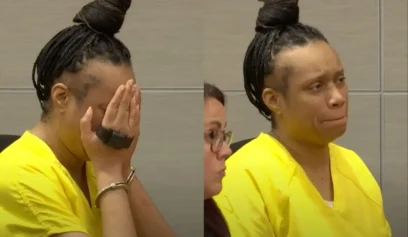
Stock photo
African-Americans are nearly twice as likely to be diagnosed with schizophrenia than whites and less likely to receive medication to treat the condition, according to a new study published in the Psychiatric Services journal.
“It’s concerning that we saw a higher rate of diagnosis of schizophrenia and seemingly an undertreatment in terms of pharmacotherapy for that group,” Ashli A. Owen-Smith, assistant professor of health management and policy at Georgia State University, said in a news release. “In general, pharmacotherapy is an important part of the treatment plan. That’s a finding that warrants some additional research.”
Owen-Smith co-authored the study.
Researchers analyzed the medical records and insurance claims of patients at 11 health care centers in the Mental Health Research Network, whose mission is improve the understanding and management of mental health conditions through a closer connection between research, practice and policy.
The health care systems had a combined total of 1.2 million patients 18 and older diagnosed with psychiatric conditions such as anxiety disorder, depressive disorder, bipolar disorder and schizophrenia spectrum disorder in 2011.
There were marked racial disparities in the rates of diagnoses, prescription of psychotropic medications and formal psychotherapy sessions.
White patients were 77.8 percent more likely than other racial groups to receive medication. This data reflects the much reported trend in opioid usage and overdoses among white Americans.
Depression and schizophrenia disorders showed the most striking variations. African-Americans were more likely to receive formal psychotherapy for these conditions than whites.
Interestingly enough, Native American/Alaskan Native patients had the highest rate of any diagnosis at 20.6 percent, and Asian patients had the lowest rates at 7.5 percent.
Experts have long tied race and socioeconomic status to mental health. Black adults are 20 percent more likely to report serious psychological distress than white adults, according to the Department of Health and Human Services’ Office of Minority Health. African-American adults living below the poverty line are two to three times more likely to report serious psychological distress than those living above it.
The Office of Minority Health reported Black adults are more likely to have feelings of sadness, hopelessness and worthlessness in comparison to white adults.
And many African-Americans continue to suffer in silence, due to the negative stigmas attached to depression.
A 1996 Mental Health America survey found only 31 percent of African-Americans believe that depression is a health problem, and 63 percent believe that depression is a personal weakness.
Owen-Smith said patients across all racial and ethnic categories are under-treated for serious mental illnesses.
“In general, across all the health systems, people with serious mental illness aren’t getting a lot of psychotherapy as a form of treatment, and maybe that’s a missed opportunity for our health systems to provide care to those patients.”
The School of Public Health professor thought some findings could be attributed to cultural preferences, as previous studies have indicated that some minority groups choose to seek alternative treatments for ailments.
Perhaps more African-American physicians are necessary to even the gap between Blacks and whites. The 1999 U.S. Surgeon General’s Report on Mental Health found that Black doctors are five times more likely than white doctors to treat Black patients, and African-American patients consistently rated their Black physicians higher when it comes to bedside manner. Respondents said Black doctors had a more participatory style of interaction.


